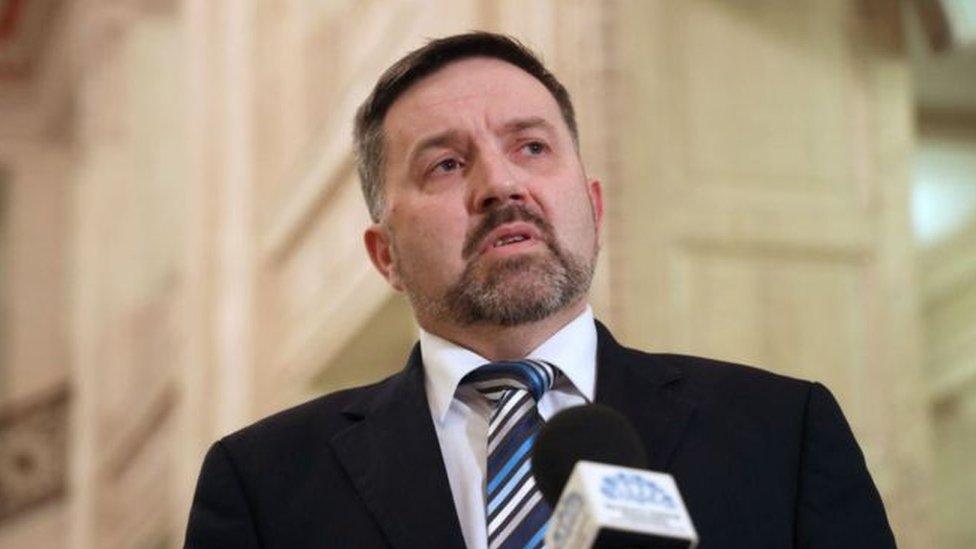Coronavirus: 'Local measures may be needed for high Covid areas'
- Published
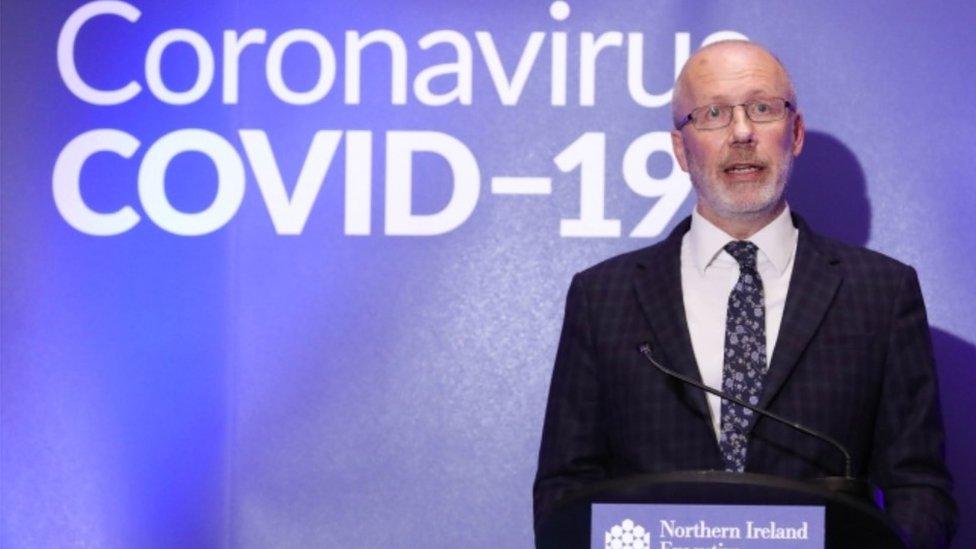
Prof Young said localised measures could not be ruled out
Local "measures" may have to be considered in areas with high numbers of coronavirus cases, NI's chief scientific adviser has said.
Prof Ian Young said the 288 cases of Covid-19 recorded by the Department of Health in the past week is of "considerable concern".
He said there are high numbers of cases in the Antrim and Newtownabbey and Mid and East Antrim council areas.
But he added there is also indication of widespread community transmission.
"We're getting close to the point, certainly in those areas with the high numbers of cases, that we may have to consider whether any additional local measures are required," Prof Ian Young told BBC's Good Morning Ulster programme.
"I don't think we're at the point where we'd be considering measures across the whole of Northern Ireland because there are still many parts of Northern Ireland where, as a result of public behaviours, the level of virus remains at a low level."
'Complacency'
While the number of hospital admissions and deaths remains low, it is the rate at which new cases are emerging that is causing health officials most concern.
Prof Young said the benchmark figure for triggering local lockdowns could be around 30 cases per 100,000.
He added that the rise in recent cases "represents a tenfold increase, or more, of the virus compared to what we were seeing around the end of June".
It comes as a further 39 people have tested positive for coronavirus in Northern Ireland in the past 24 hours, according to the Department of Health's latest update.
This now brings the total number of confirmed positive cases in Northern Ireland to 6,430.
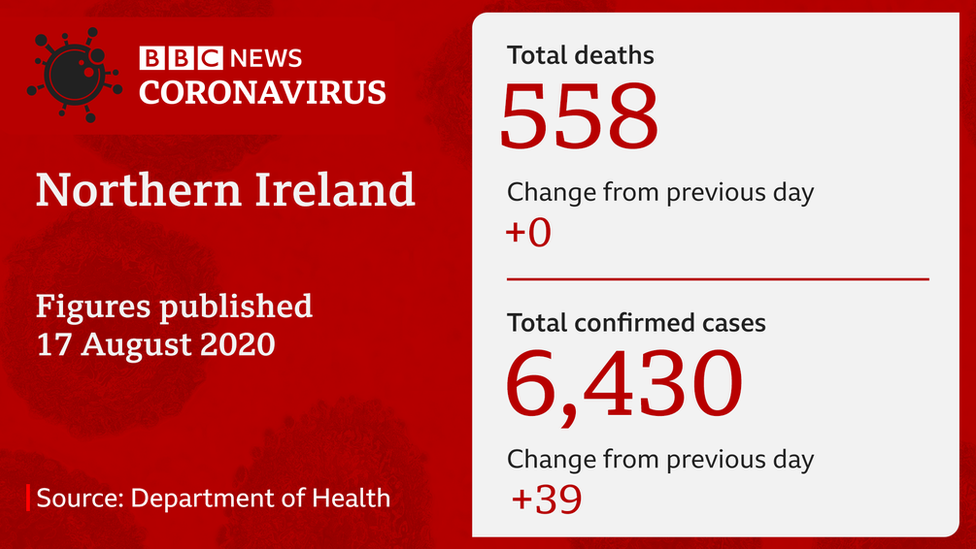
No new deaths were recorded by the department in the past 24 hours.
The department's daily figures are mostly comprised of hospital deaths, where a patient had previously tested positive for the virus.
Meanwhile, in the Republic of Ireland, the country's Department of Health reported 56 additional cases in the past 24 hours, bringing the total number of confirmed cases there to 27,313.
No new deaths were recorded by the department, with the death toll remaining at 1,774.
While he said he recognises the economic benefit of people returning to work, Prof Young's advice is for people to continue to work from home where possible.
"We're undoubtedly seeing Covid fatigue and that leads into complacency," said Prof Young.
"I can understand it to an extent but we have to keep working hard consistently with the basic guidelines and make them embedded in people's lives."
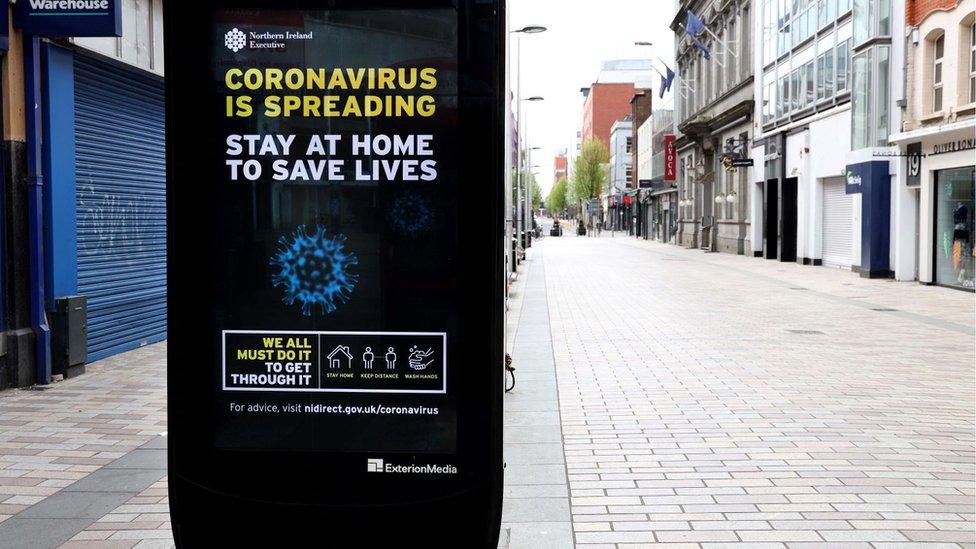
NI went into lockdown in March
It has now been more than six weeks since the last Stormont briefing on coronavirus.
It was Deputy First Minister Michelle O'Neill's attendance at the funeral of senior republican figure Bobby Storey that brought them to an abrupt halt.
Prof Young said that the return of regular briefings is being discussed.
"It's important we have clear and transparent communications and high-profile briefings where possible," he said.
On Saturday, the Department of Health said a further 27 people tested positive for coronavirus in Northern Ireland.
There have now been a total of 6,391 people who have tested positive for coronavirus in Northern Ireland.
In the Republic of Ireland, 200 new cases were reported on Saturday - the highest number in a single day since the start of May.
A further 66 were confirmed on Sunday, taking the country's total number of confirmed cases to 27,257.
The taoiseach (Irish PM) said the number of new cases in the Republic is "deeply concerning".
Micheál Martin said that it is an "evolving situation" and the government would monitor it closely.
The footage was shot on Saturday afternoon
On Sunday, Ireland's health minister condemned "reckless scenes" at a venue in Dublin which appeared to breach social distancing regulations.
Footage from Berlin D2 on Saturday showed a man standing on the bar pouring drinks into people's mouths.
Guidelines say people must sit at tables in such venues unless they are paying, leaving or going to the toilet.
- Published16 August 2020
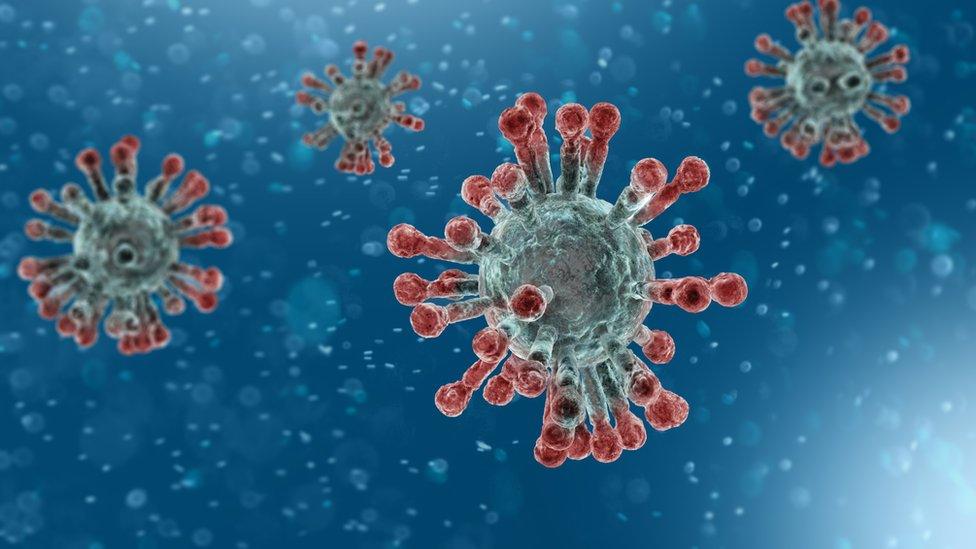
- Published17 August 2020
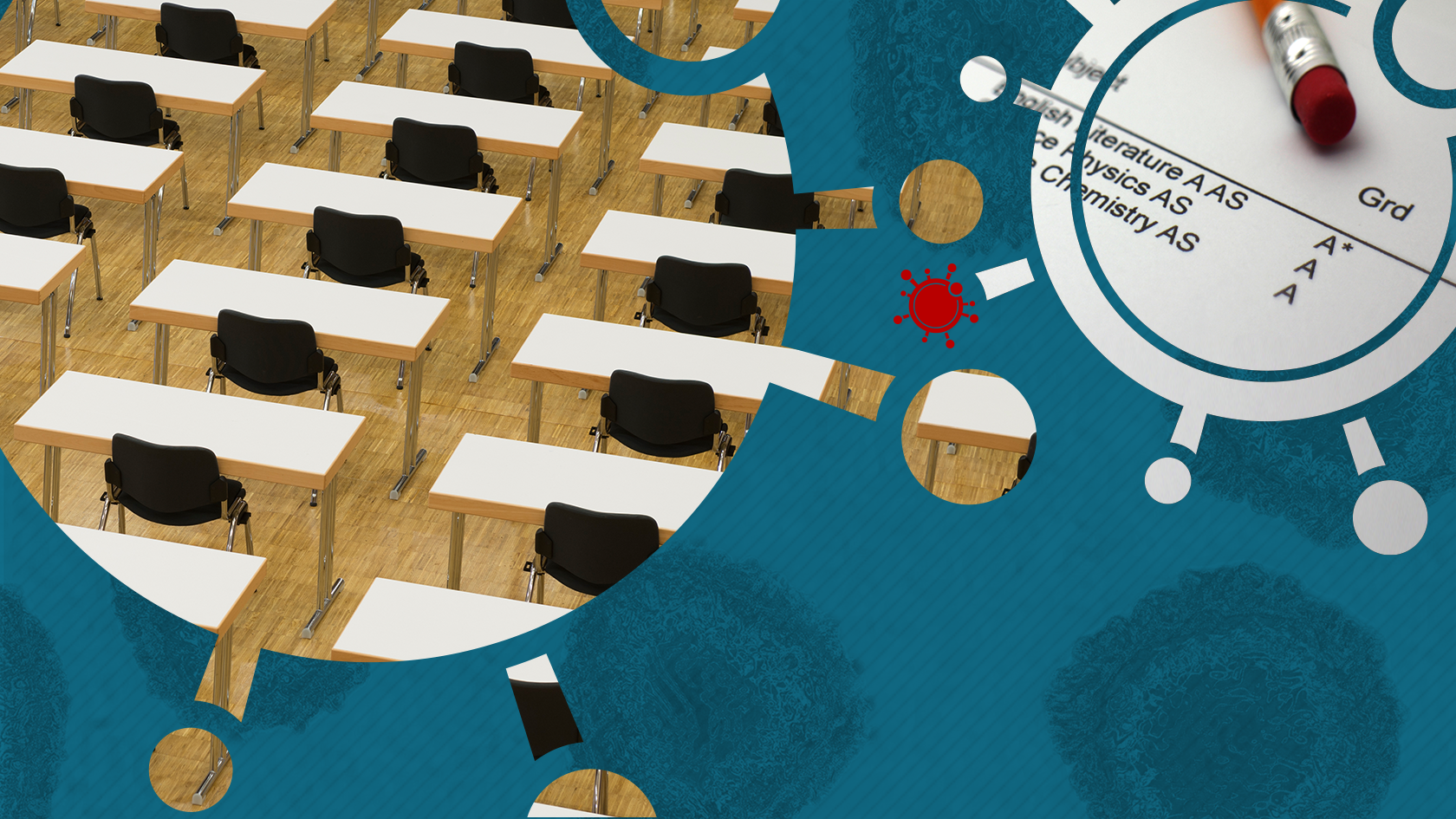
- Published12 August 2020
